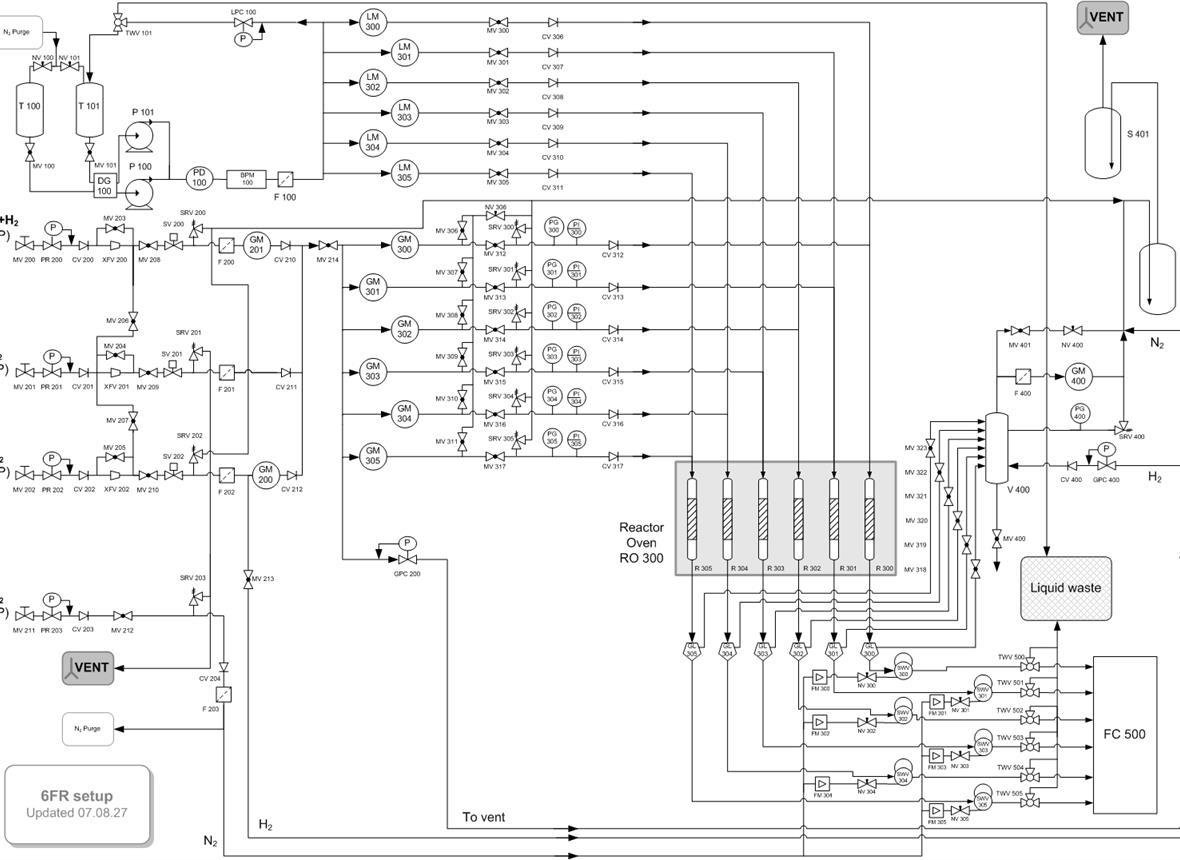Abstract
Establishing a reaction network is of uttermost importance in complex catalytic processes such as fluid catalytic cracking (FCC). This step is the seed for a faithful reactor modeling and the subsequent catalyst re-design, process optimization or prediction. In this work, a dataset of 104 uncorrelated experiments, with 64 variables, was obtained in an FCC simulator using six types of feedstock (vacuum gasoil, polyethylene pyrolysis waxes, scrap tire pyrolysis oil, dissolved polyethylene and blends of the previous), 36 possible sets of conditions (varying contact time, temperature and catalyst/oil ratio) and three industrial catalysts. Principal component analysis (PCA) was applied over the dataset, showing that the main components are associated with feed composition (27.41% variance), operational conditions (19.09%) and catalyst properties (12.72%). The variables of each component were correlated with the indexes and yields of the products: conversion, octane number, aromatics, olefins (propylene) or coke, among others. Then, a data-driven reaction network was proposed for the cracking of waste feeds based on the previously obtained correlations.
Keywords
FCC
W2C
MKM
